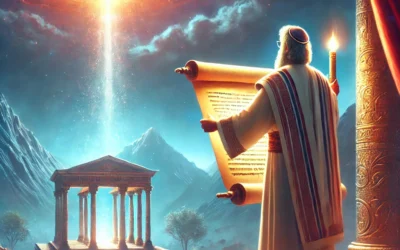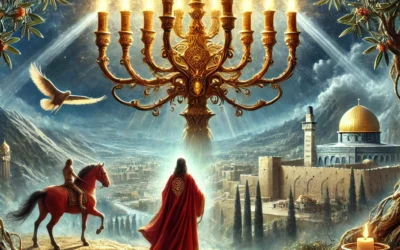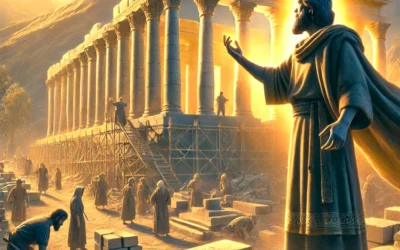The Book of Isaiah is the twenty-third book of the Bible and the first of the Major Prophets.
Written by the prophet Isaiah, who ministered during the reigns of several kings in Judah (around 740–680 BC), the book contains powerful messages of warning, comfort, and future hope.
It speaks of God’s holiness and judgment but also foretells the coming of a Savior who will bring redemption.
Isaiah’s message is timeless—calling God’s people to repent, trust in Him, and look forward to His ultimate plan of salvation.
Isaiah’s Calling and God’s Judgment (Isaiah 1–12)
Isaiah begins with a call for repentance, warning Judah of coming judgment for their sin and injustice—but also offering hope through a future King.
Key Highlights:
- “Though your sins are like scarlet, they shall be as white as snow.” (Isaiah 1:18)
- Isaiah has a powerful vision of God’s holiness in the temple (Isaiah 6).
- Prophecies about the Messiah’s birth: “The virgin will conceive and give birth to a son…” (Isaiah 7:14).
Lesson: God is holy and just—but also full of grace, always ready to forgive the repentant heart.
Prophecies Against Nations (Isaiah 13–23)
Isaiah delivers God’s judgment on the surrounding nations, including Babylon, Moab, Egypt, Tyre, and Assyria.
Key Highlights:
- God uses nations as instruments of judgment, but He also holds them accountable.
- These chapters show God’s sovereignty over all the earth, not just Israel.
Lesson: God is not just the God of Israel—He is the Lord of all nations and will bring justice globally.
Warnings and Promises in Times of Crisis (Isaiah 24–39)
Isaiah gives both warnings of worldwide judgment and encouraging promises for the faithful remnant. He also recounts historical events involving King Hezekiah.
Key Highlights:
- God will one day swallow up death forever and wipe away tears (Isaiah 25:8).
- Hezekiah’s faith delivers Jerusalem from the Assyrians.
- Hezekiah later fails in pride, leading to a prophecy of future exile.
Lesson: Trusting in God brings protection and peace—even when the world is in turmoil.
The Coming Servant and Future Redemption (Isaiah 40–55)
This section shifts to comfort and hope, introducing the theme of God’s Suffering Servant, a prophecy about Jesus Christ.
Key Highlights:
- “Comfort, comfort my people…” (Isaiah 40:1)
- “Those who hope in the Lord will renew their strength…” (Isaiah 40:31)
- The Suffering Servant (Isaiah 53): “He was pierced for our transgressions…”
Lesson: Salvation comes through the suffering and sacrifice of the Messiah—Jesus Christ.
Restoration, Justice, and Future Glory (Isaiah 56–66)
The final chapters speak of inclusion for all nations, God’s coming judgment, and the promise of a new heavens and new earth.
Key Highlights:
- God welcomes foreigners and outcasts who seek Him.
- A promise of God’s final victory over evil.
- “Behold, I will create new heavens and a new earth.” (Isaiah 65:17)
Lesson: God’s plan is to restore all things and bring eternal peace to those who trust in Him.
Final Thoughts
The Book of Isaiah reveals a God who is both righteous and merciful.
It warns of judgment but overflows with hope, pointing clearly to Jesus as the one who would suffer, save, and reign.
Isaiah invites us to trust in God, turn from sin, and look forward to the day when all things are made new.





